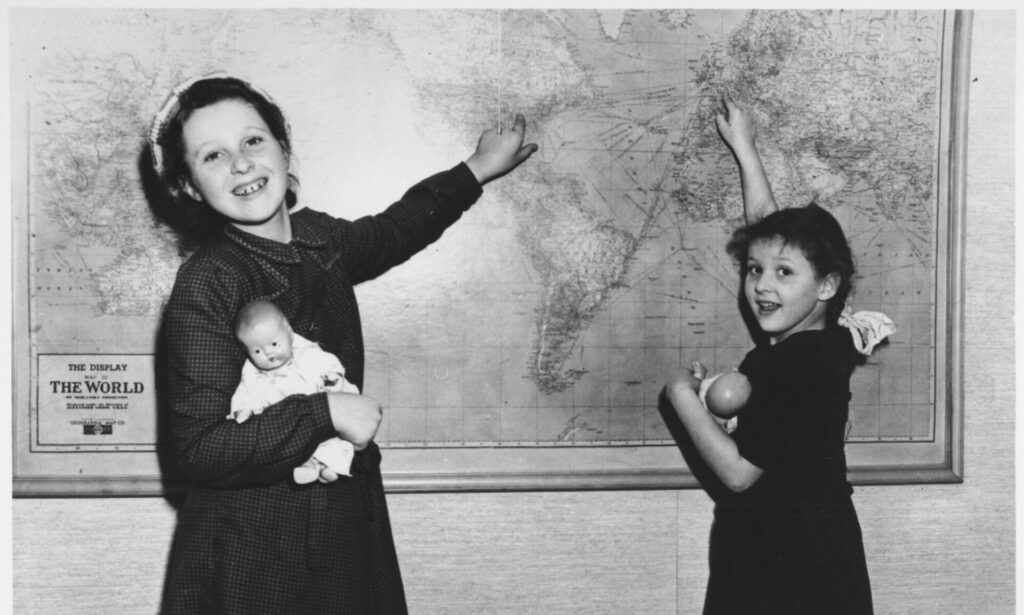Editorial note: With this post, we would like to distribute the following call for papers from our host institution, the German Historical Institute Washington. The workshop is co-organized by the Migrant Knowledge network members Simone Lässig and Swen Steinberg, and Swen Steinberg also co-edits the Migrant Knowledge blog. Accordingly, the topic is closely related to our theme. Deadline: September 1, 2023.
University of Southern California, Los Angeles
28–29 June 2024
Convenors
Einstein Papers Project / California Institute of Technology (Jennifer Rodgers); German Historical Institute Washington with its Pacific Office at UC Berkeley (Simone Lässig, Anna-Carolin Augustin, Swen Steinberg); Holocaust Research Institute, Royal Holloway, University of London (Dan Stone); Queen Mary, University of London (Jane Freeland); Wiener Holocaust Library, London (Toby Simpson, Christine Schmidt) as part of the Holocaust and Genocide Research Partnership (HGRP); USC Dornsife Center for Advanced Genocide Research (Wolf Gruner).
This workshop will explore new ways of thinking about archives, archival records, and other artifacts historians might use as primary sources to gain deeper insight into the history of migrants in transit and the knowledge they possessed, produced, transmitted, or lost. With a starting point in the history of Jewish migration from National Socialist-occupied areas, the workshop broadens out to investigate the experiences of refugees and migrants fleeing genocide, armed conflict, and persecution throughout the twentieth century. Specifically, we use the idea of “lost knowledge” (Steinberg/Strobl) to ask how migrants who leave their homes try to convey both the sense of loss and the disorientation that accompany the navigation of new lived realities—from the geographical to the socio-cultural, political, and beyond—in correspondence or other materials that capture any aspect of their flight and migration. More particularly, this workshop examines how migrants craft their words depending on who they are writing to and when. How do their letters, photographs, and other artifacts communicate their experiences both to their contemporary and future generations? How can we reframe personal documentation, visual (re)sources, artifacts, and other material culture of migrants as sites of knowledge production? What role do archives play in allowing us to ask and address these questions? And what happens to the “archive” in contexts of transoceanic forced migration, such as the Holocaust? How does migration challenge concepts of archival materiality and fixity and, further, how have the “material turn” and the new interest in soundscapes and the digital age not only complicated but also enhanced our research?
In this workshop, we will initiate discussions around these topics and others that bring together a transnational history of the Holocaust with studies of migrant knowledge in different contexts, including contemporary conflicts and migration. The convenors invite submissions from a variety of researchers, including not only historians but also archivists, librarians, heritage practitioners, digital humanists, and museum professionals. We are particularly interested in an interdisciplinary exchange of ideas and knowledge between fields, including practice-based community archives, to understand continuities and ruptures between historical frameworks and present-day practices. We welcome paper proposals that address the following themes, but we remain explicitly open to further related suggestions:
- Gender and Generation: What role do gender and generation play in migrant knowledge and its preservation in archives? In what ways do these affect a migrant’s ability to speak? When and to whom do they speak? What role does generational trauma play in the recording of experiences, as well as in later generations’ understanding of migrant experiences? How do different stages of migration and especially transit intersect with age, gender, and other characteristics? How do these factors influence the ways in which experiences are recorded?
- Practices: How do professionals such as scholars and researchers, medical personnel, or social workers impact the conservation of migrant voices? What tools are necessary to approach refugees and other migrants in transit? How can professionals help migrants document their experiences, and how can practitioners justify their participation in the formation of migrant knowledge and/ or knowledge networks?
- Institutions: What strategies of collecting and discarding do individuals, institutions, and organizations use? What role does funding play in the ability to store migrant knowledge in perpetuity? What forms of representation exist beyond the institution (collaboration, digital humanities)?
- Agency: How do migrants, particularly in transit, claim agency and empowerment, and how do these support their self-preservation?
- Materiality: How do migrants record their experiences—in texts, objects, or sounds? How are historical narratives determined by the materiality of migrant experiences and knowledge?
- Memory: When and why do various groups of people (and which ones) become interested in people in transit? How does the so-called post-memory age affect the ways in which younger generations access archives and artifacts in/of transit and thus understand not only the history itself, but, more importantly, their ancestors’ experiences of persecution and migration as well as rescue and relief? How have the digital age and AI complicated the “archive in transit” and, in turn, personal historical narratives as sites of memory?
This conference will be an in-person only event. Please upload a brief CV and a paper proposal of no more than 400 words by September 1st, 2023, in a single PDF document to our conference platform. Participants will be notified by the end of October 2023 at the latest. The papers will be pre-circulated on a secure website, and participants will present them only in summary form at the conference. The conveners plan to disseminate results of the workshop via open access sources such as the Migrant Knowledge blog and/or a special issue of a peer-reviewed journal/edited volume.
Accommodations will be arranged and paid for by the conference organizers. Participants will make their own travel arrangements; funding subsidies for travel may be available upon request for selected scholars, especially those who might not otherwise be able to attend the workshop, including junior scholars and scholars from universities with limited resources.
